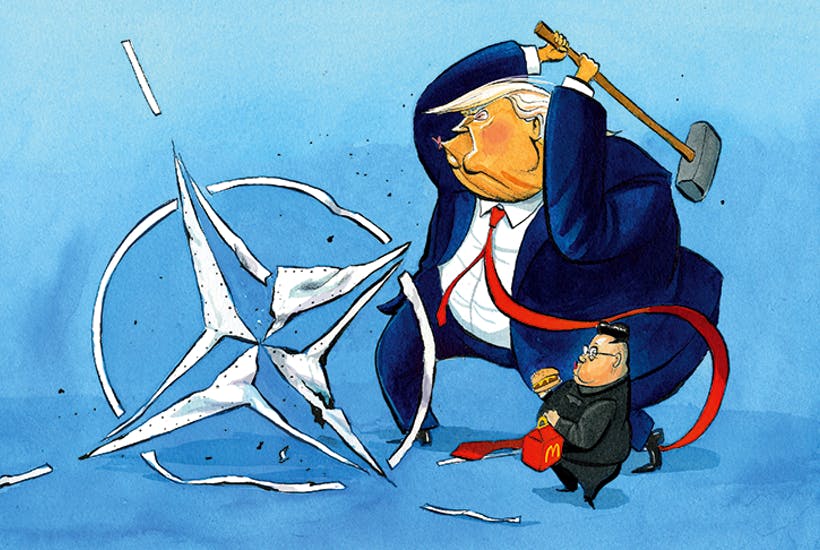
For years now I’ve had students in my international conflict class read an old article by University of Chicago political scientist John Mearsheimer, “Why We Will Soon Miss the Cold War.” In it Mearsheimer, a noted international relations realist, predicts Europe will return to the bad old days of unstable multi-polar balance of power dynamics which historically led to wars among the continental great powers.
Mearsheimer was writing in 1990, just as the Cold War was ending, and where others saw a bright, cooperative, and peaceful future, he saw something much darker:
We may, however, wake up one day lamenting the loss of order that the Cold War gave to the anarchy of international relations. For untamed anarchy is what Europe knew in the forty-five years of this century before the Cold War, and untamed anarchy – Hobbes’s war of all against all – is a prime cause of armed conflict. Those who think that armed conflicts among the European states are now out of the question, that the two world wars burned all the war out of Europe, are projecting unwarranted optimism onto the future …
Peace in Europe during the Cold War was, in Mearsheimer’s analysis, a product of the order imposed by two roughly equally matched, nuclear-armed, superpowers. With the Cold War over, that bipolar order went with it, paving the way for a return to the old, destructive patterns of history.
With the order of the Cold War gone, the states of Europe would once again be forced to put their own security first. Neither the prosperity that comes with membership in a common economic market, nor joint adherence to democratic norms and values, would be sufficient to guarantee the safety of European states in system characterized by anarchy and the requirements of self-help. Nuclear proliferation, at the very least to Germany, was assumed. War was not out of the question.
But the old patterns never actually came back, despite Mearsheimer’s prediction. Thirty years on from the end of the Cold War, Europe remains peaceful, prosperous, and democratic. And neither the Germans, nor any other European state, has developed nuclear weapons.
The key question I ask my students is why. Why was Mearsheimer wrong?
The answer is simple: Mearsheimer assumed that with the Cold War over and the threat posed by the Soviet Union gone, the United States would abandon Europe and the NATO alliance would dissolve. That, of course, didn’t happen.
Perhaps until now.
President Trump is now in Brussels for the NATO summit, and has spent his time, both in tweet before and in person while there, berating America’s allies, demanding they increase defense spending (they already have), and claiming the alliance is a raw deal for the US that disproportionately benefits Europe while we’re left holding the bag.
Every public statement from the president further undermines confidence in America’s commitments. Every new statement, every new set of plaudits thrown by Trump at Vladimir Putin’s feet, creates a little more doubt about whether we will stand in common defense of our allies. With all this, our allies must think, perhaps they should look to their own security once again.
And so, Mearsheimer might say, begins the return to form.
When it comes to understanding international politics, realists like Mearsheimer suggest that it all comes down to the long game. Given time, the standard patterns of interaction that characterize international relations will reassert themselves, sure as one season follows another. Wait long enough and history, or some close variant of it at least, really does repeat itself.
I hate to think that Trump is making Mearsheimer right after all.